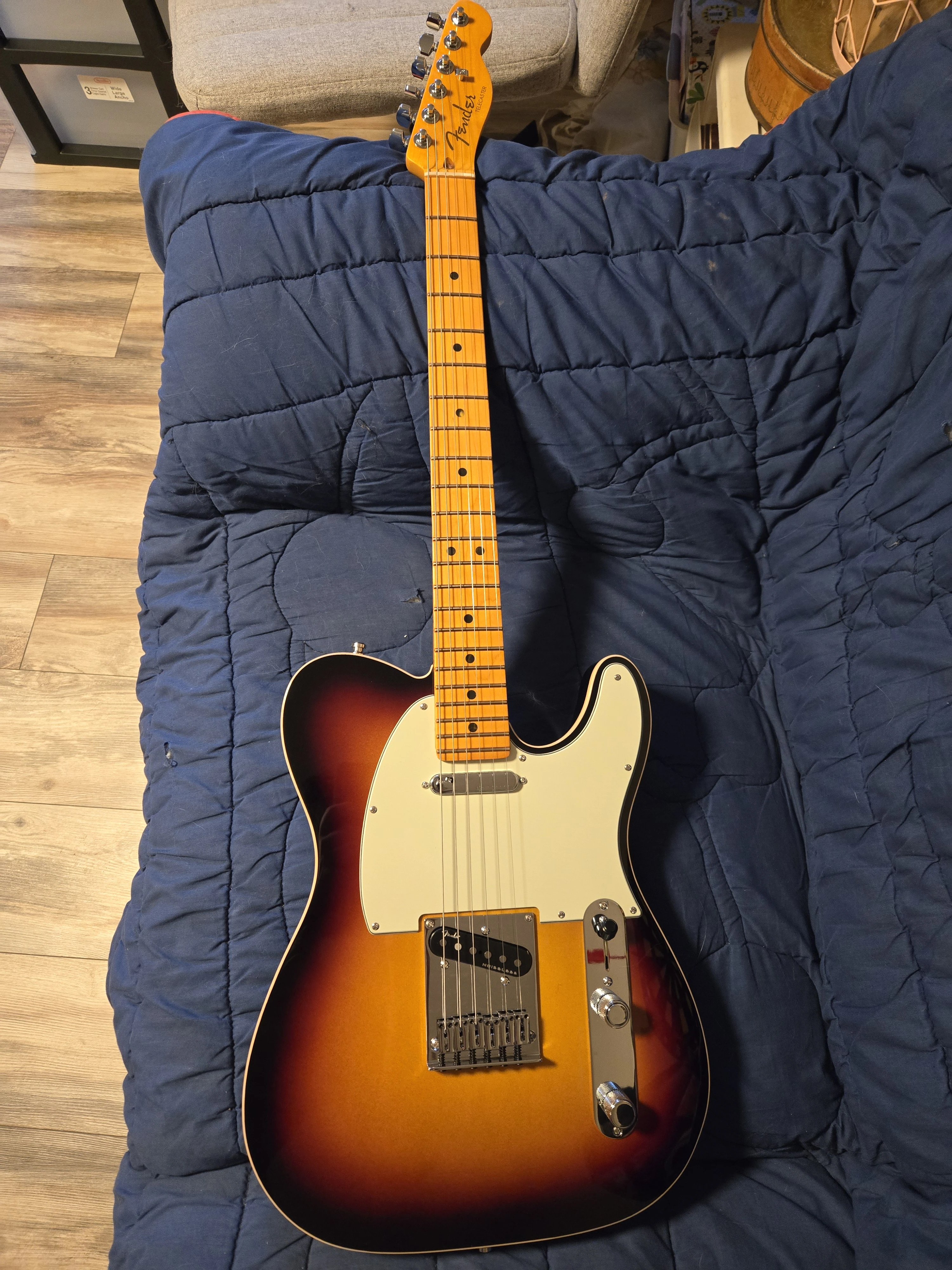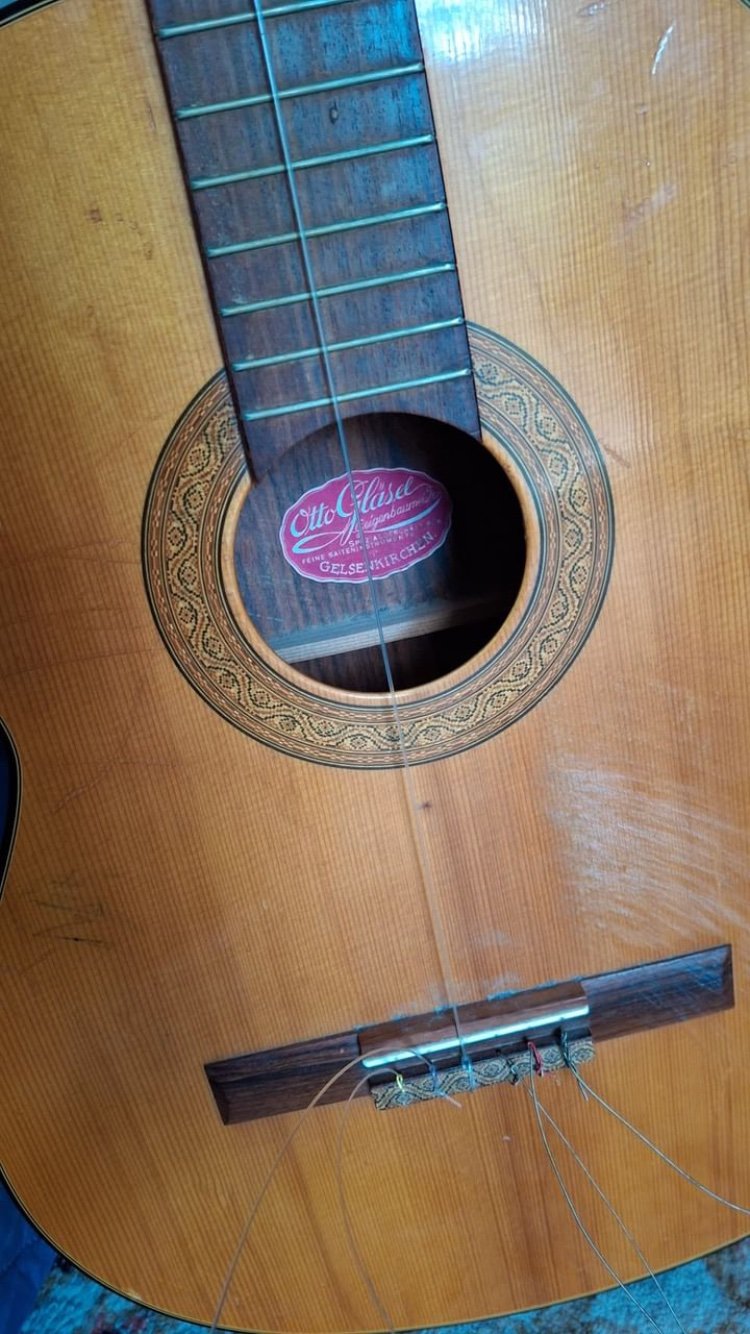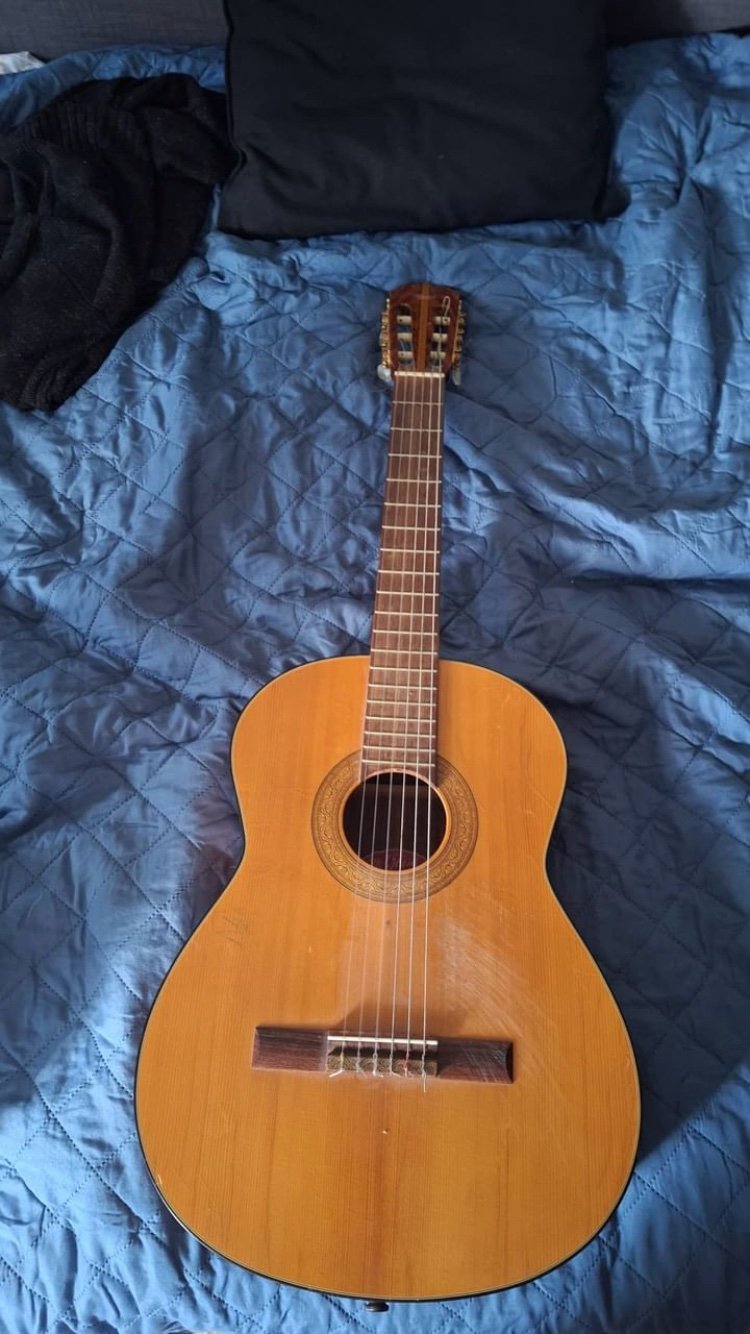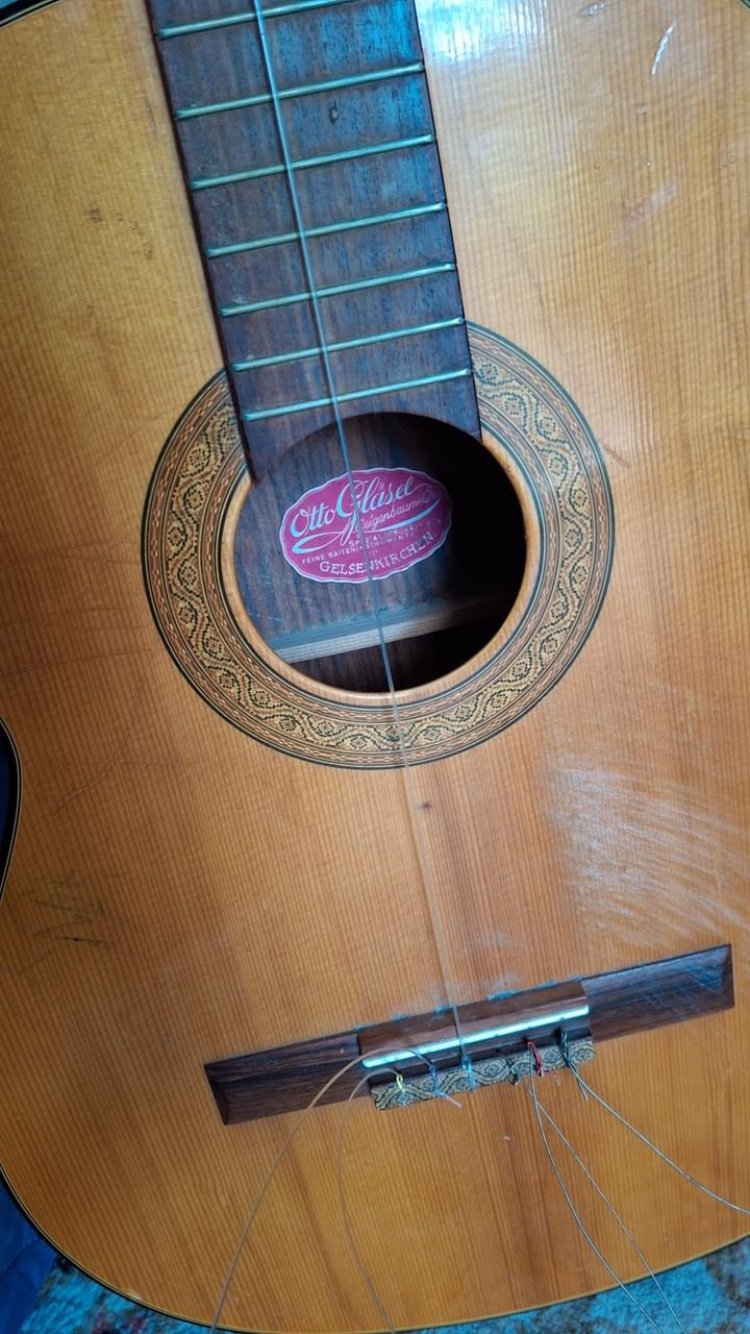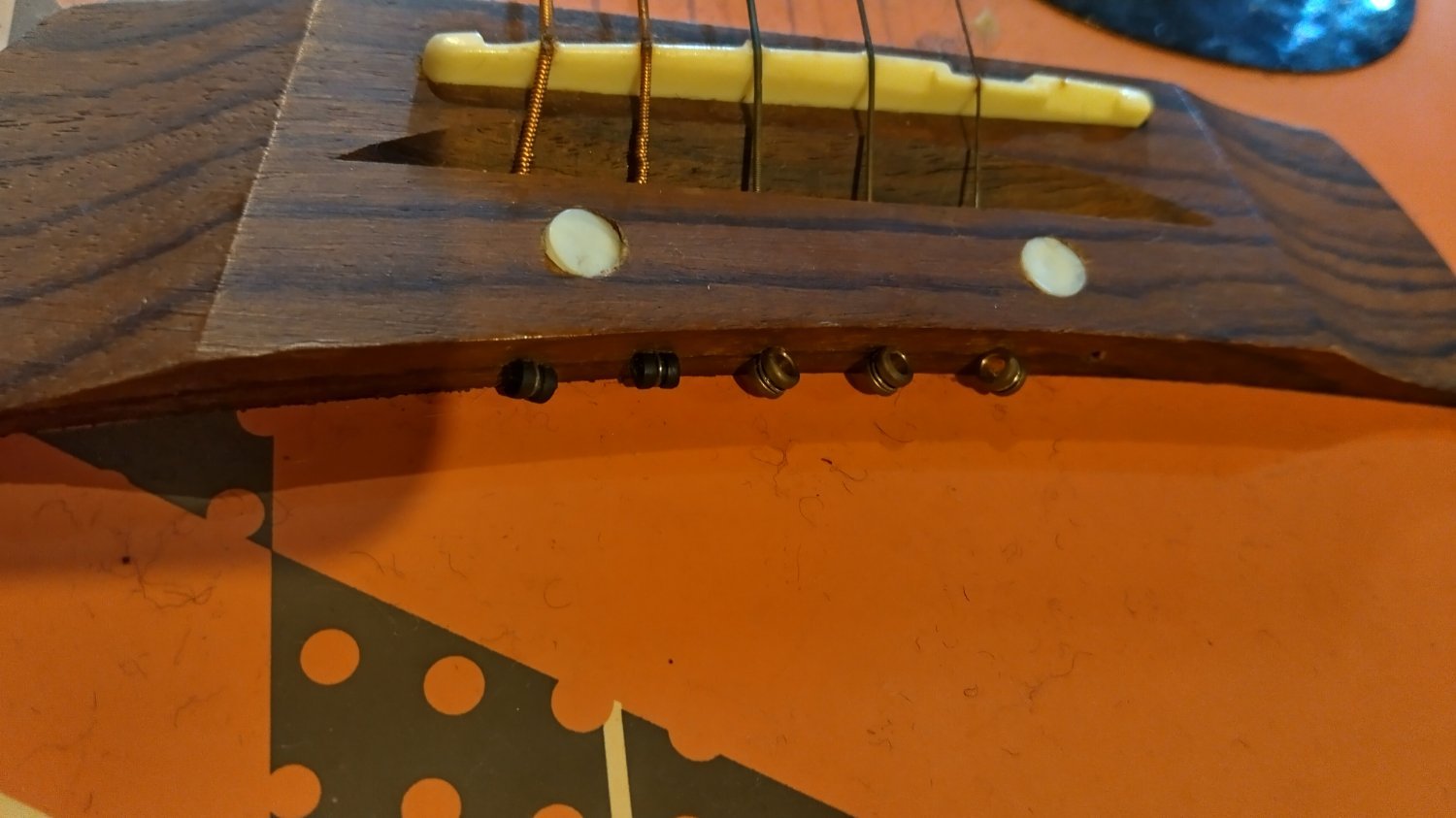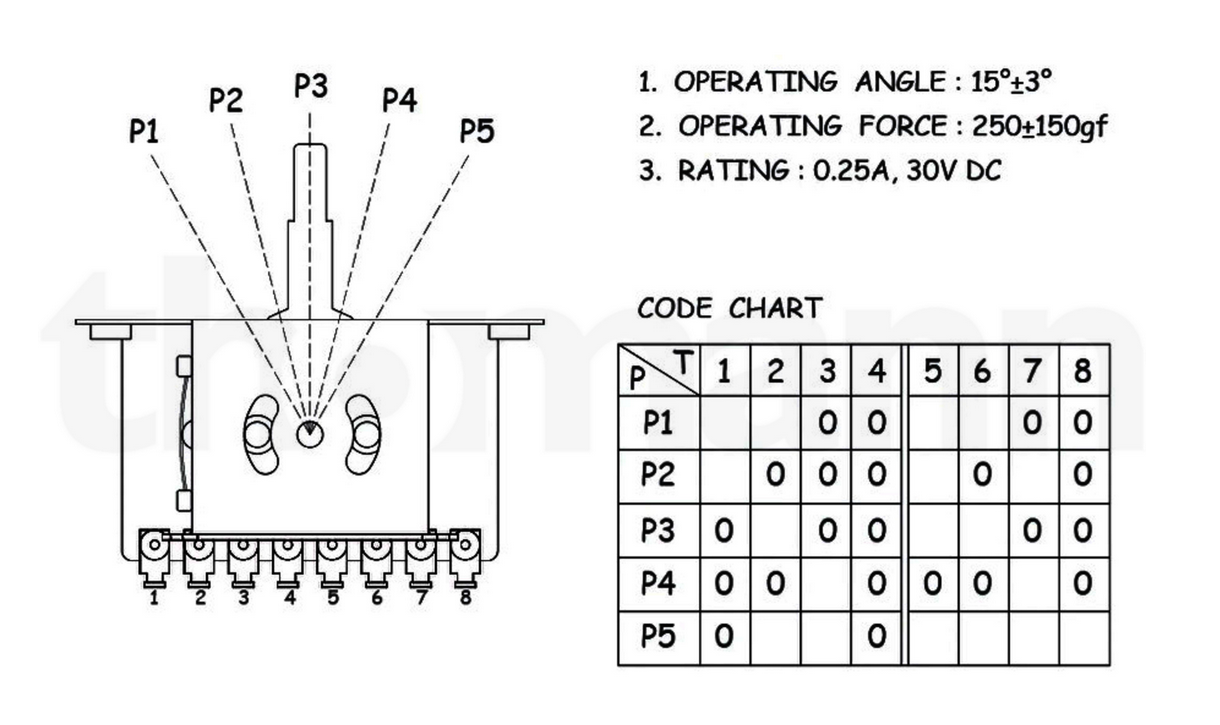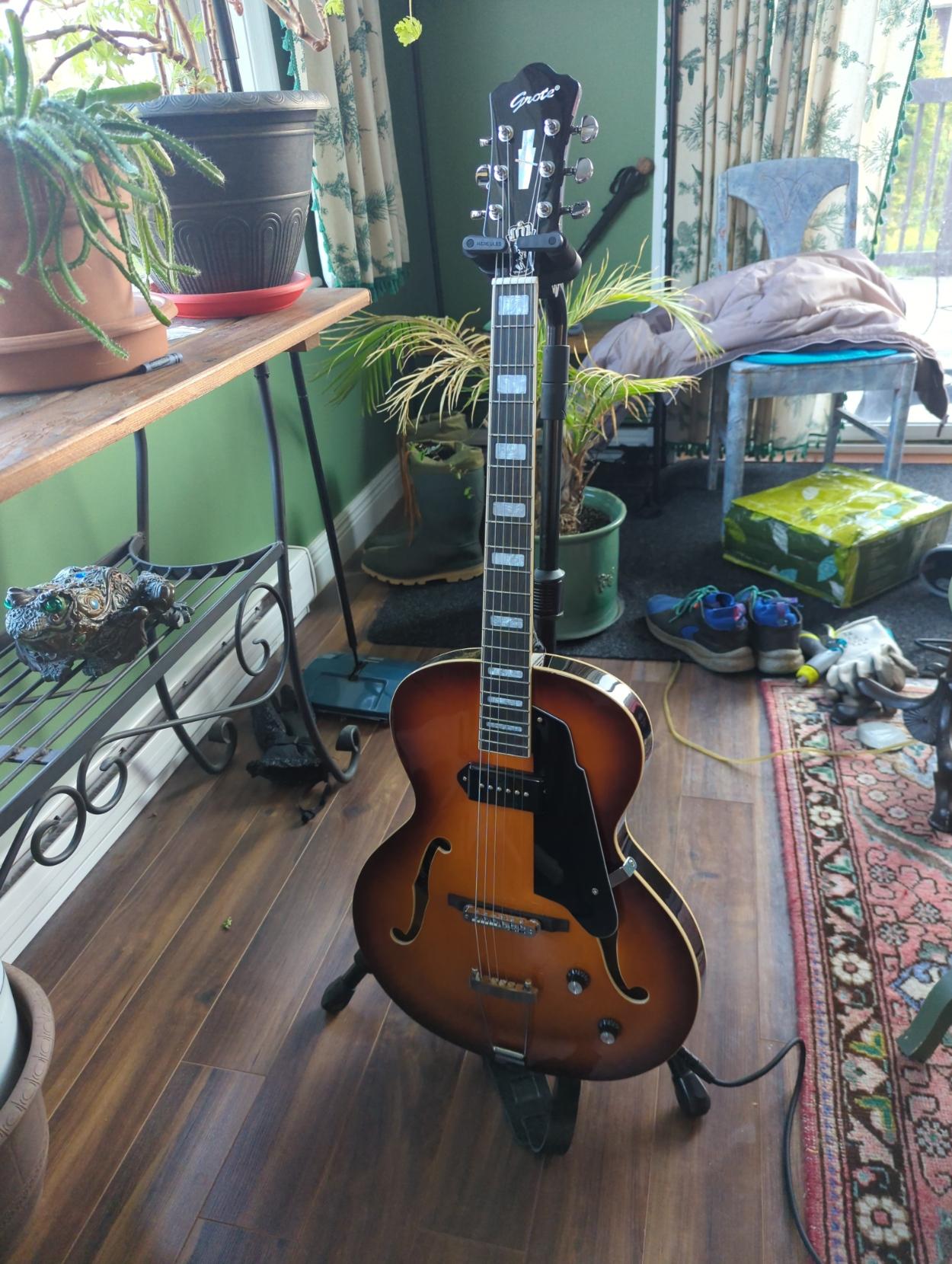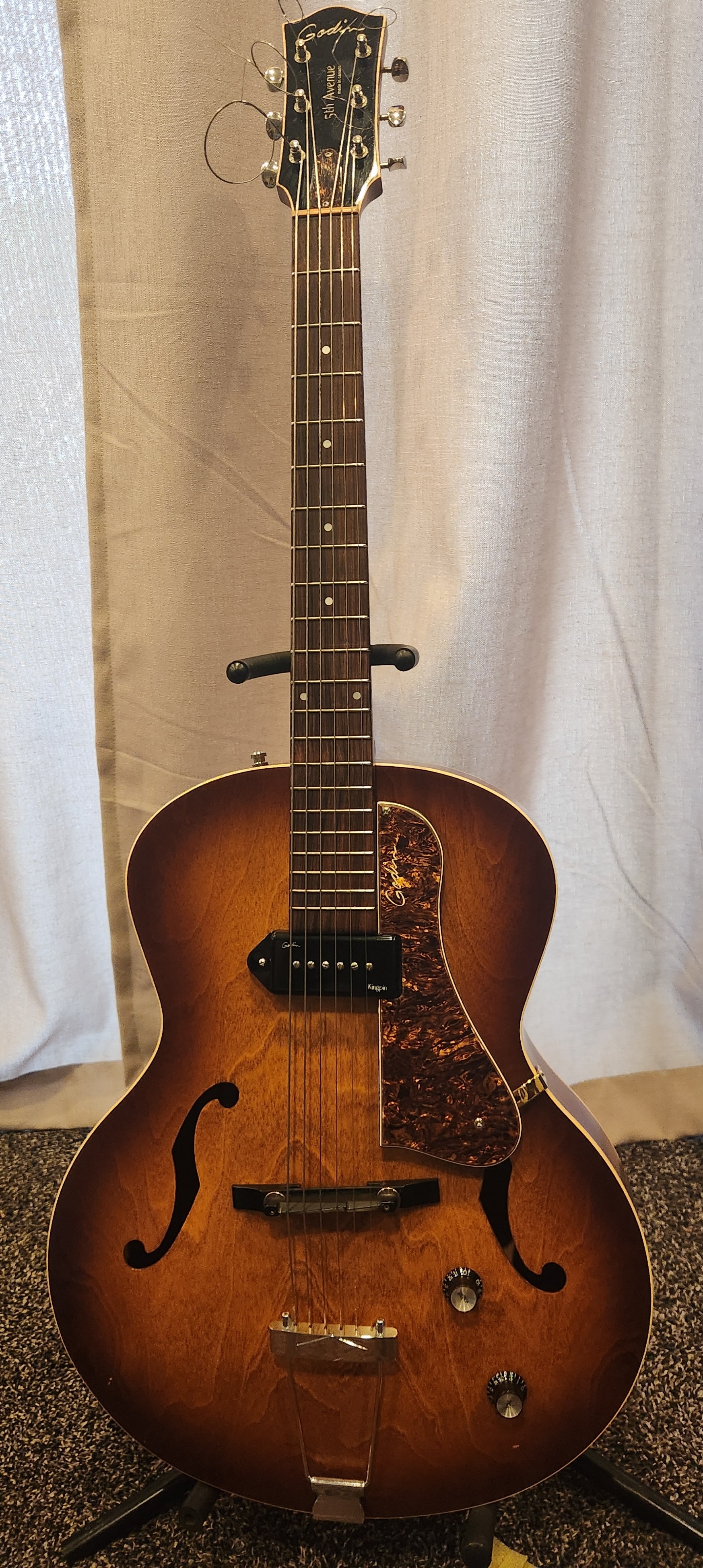I have been working on a dual humbucker (HH) Strat clone and have been researching 5-way switching options. Remarkably, this information is ridiculously difficult to find. Most dual humbucker (HH) guitars appear to be wired with standard Les Paul style wiring (3 positions only) or use other fancy switching options like push-pull posts. There is very sparse information on using 5 way switches you would find on a Strat. I thought I would archive some of my findings here.
(edit: you can use a 5-way superswitch to get tons of 5-way switching options. in my case, the superswitch does not fit into my control cavity, also, there is a ton of documentation on superswitches on the internet. what has very sparse info is the 2502n "Ibanez" switch, which is what I focus on here.)
First: know the difference between a standard 5 way switch and an Ibanez switch (also known as an Alpha 2502n switch).
A standard 5-way switch may be produced by a variety of different companies, such as Alpha, CTS, Oaks-Grisby, etc. they are used in Strats and Strat-styled guitars. They are an evolution of 3 way switches first used in vintage Teles and Strats. Strat players discovered that you could jam a 3-way switch into an "in-between" position so that the neck and middle (or middle and bridge) pickups could be in together in parallel, giving us the famous Strat quack. The standard 5-way switch simply added "stops" for the in-between positions so that they would be easier for the player to click into. 5-way switches are extremely common and you can buy them everywhere online, and they are pretty cheap. Standard 5-way switches are symmetrical, meaning that it doesn't matter which way the switch is installed into the guitar - either way the lugs will work the same. With a 5 way switch, your options for wiring HH guitars are somewhat limited. The easiest wiring option is to simply treat it as a 3 way switch. Position 5 = neck, position 3 = both, position 1 = bridge. I'm actually not entirely sure what positions 2 and 4 would do - if I understand things correctly, position 4 will just be the same as position 5, and position 2 would be the same as position 1.
I had to really dig deep into the internet to find something - ANYTHING - that would give some more variation with HH wiring using a standard 5-way switch. One such diagram I found is from Caliguitar.com. In this wiring diagram, assuming you have 4-lead humbuckers, you can get single coil split as well as a Tele-like single coils from each pickup in parallel. If you're familiar with standard Strat wiring you will be staring at this diagram for a LONG TIME wondering just how the fuck it works lol but trust me I wired it up and it works. You will need to be careful with the color coding of the wires in the diagram - I believe they are non-standard. Their color coding is black = N start, white = N end, green = S start, red = S end.
Which leads me to Ibanez switching. Actually the way I discovered this was because I bought a pair of DiMarzio humbuckers and went to their website to look for wiring diagrams. When you go to their support page, under "RG" style, they list "standard HH wiring for Ibanez". This wiring diagram on paper looks great! It gives a bunch of interesting options, including having the neck humbucker coils in parallel instead of in series. On the diagram, they show "Ibanez OEM switch" with no further explanation. It winds up that the Ibanez OEM switch is the same thing as an Alpha 2502n switch and is NOT the same as a standard 5-way switch.
Although there are some websites (such as DiMarzio or Ibanez) that tell you how to wire things up, it was very hard to find information about how the switch actually works. The Harley Benton website sells this switch in Europe (US folks, don't buy this switch here, shipping is $80 for a $3 switch lol) and has a schematic, which I have duplicated here (see attached image). I have verified how this switch works with a multimeter. the first four lugs are a "group" and lugs 5-8 are a second "group". For 1-4, 4 is the common, so you would use this lug as the hot going to the volume pot. there are no connections in the switch between 1-4 and 5-8 (you need to have a jumper somewhere so that 5-8 can somehow go to hot). for 5-8, 8 is the common, but in position 5, lugs 5-8 are not connected to anything. This also means (and this is important!) that the 2502n switch is not symmetrical, unlike a standard 5-way switch. This means that for it to work the switch can only be installed in one direction.
It also winds up that it is difficult to buy a 2502n switch in the USA. Lots of folks sell it for very exhorbitant prices (up to $25 USD, shipping extra). Compare this to a typical standard alpha switch or Fender OEM switch (~$10 USD on amazon, shipped). You can get a 5-way "superswitch" (for a different post, lol) for under $20. The best place to get a cheap 2502n switch is aliexpress. I got mine delivered for $5 USD. the only drawback is that the aliexpress website is difficult to navigate. I wound up ordering the wrong part before I figured out how their shopping system works.



